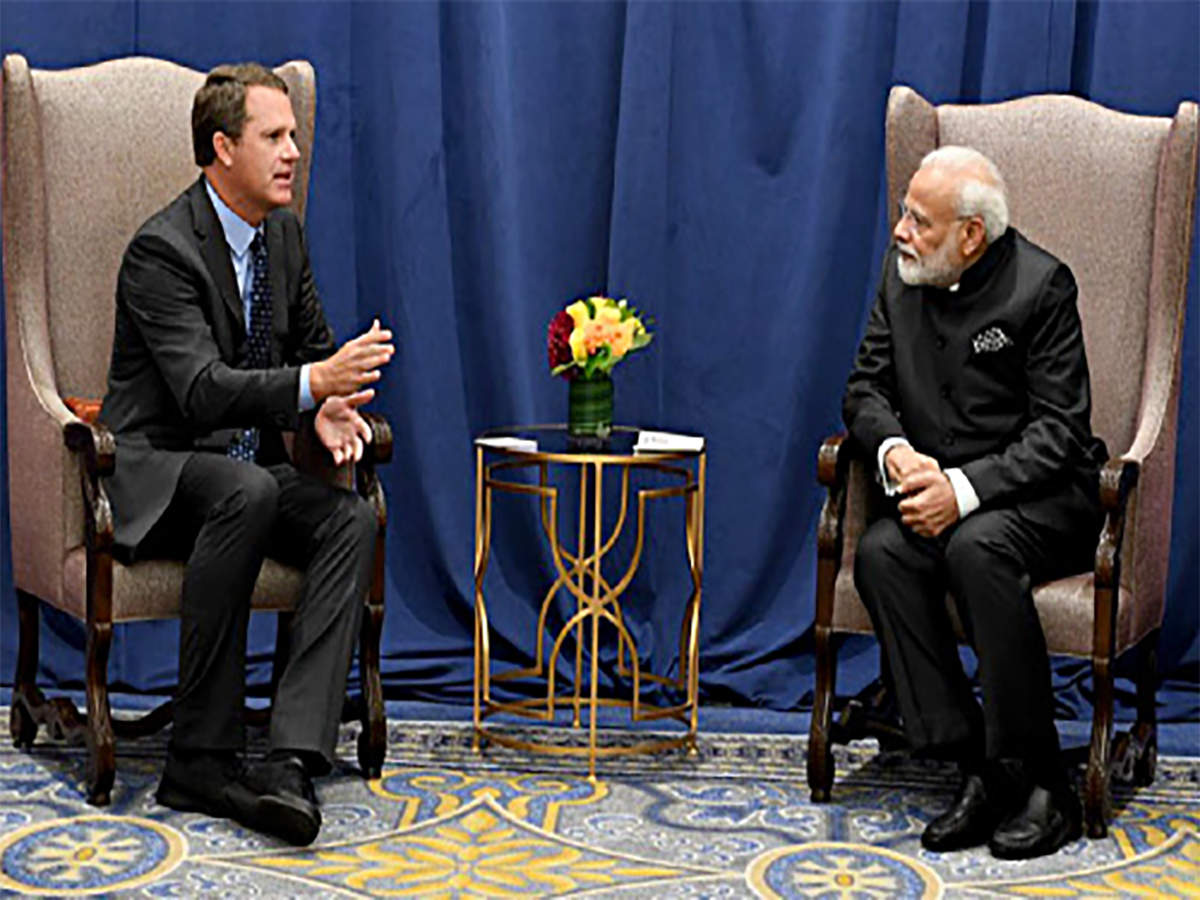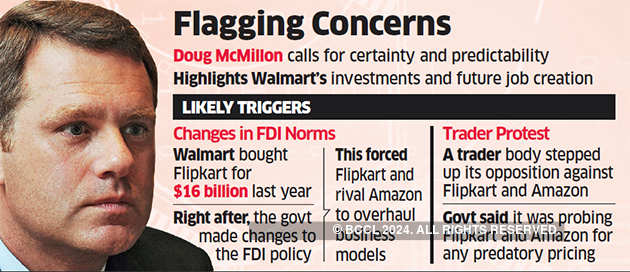 NEW DELHI | BENGALURU: Walmart chief executive Doug McMillon has written to Prime Minister Narendra Modi, seeking certainty and predictability in India’s business environment, people familiar with the matter said.
NEW DELHI | BENGALURU: Walmart chief executive Doug McMillon has written to Prime Minister Narendra Modi, seeking certainty and predictability in India’s business environment, people familiar with the matter said.Changes in foreign direct investment rules for ecommerce marketplaces late last year had upset Walmart-owned Flipkart and rival Amazon, and forced them to overhaul their business models.
Walmart was particularly disappointed because the changes had come just months after it paid $16 billion to acquire Flipkart. The local units of both US companies are now also facing probes over their alleged roles in predatory pricing that small retailers claim was forcing them out of business.
McMillon, who had met Modi in New York on September 25 during the PM’s visit to the US, has in his letter highlighted Walmart’s commitment to India, including investments to empower small and medium enterprises, global sourcing from the country and job creation that it would do here in the future, even as he called for a stable environment. He also lauded the PM for the improvement in India’s ranking on ease of doing business.
A Walmart India spokesperson declined to comment on the letter.
The letter comes at a time when a body of small traders, which has been accusing Flipkart and Amazon of “unfair business practices” and violation of FDI rules, has stepped up its opposition against the foreign-owned marketplaces, blaming predatory pricing by the two companies for a slump in the businesses of traditional retail during the ongoing Diwali season.

On Monday, the Confederation of All India Traders claimed that Amazon and Flipkart together generated total business worth Rs 19,000 crore in their four-day mega sales events earlier this month. Last week, commerce minister Piyush Goyal said the government was probing Flipkart and Amazon for any predatory pricing.
This has come as a new setback for the two companies that were already uncomfortable about the changes in regulations.
In December, India put a 25% cap on the amount of goods that an affiliate of a foreign-owned marketplace can supply to any independent seller on the platform. The ruling was put into effect soon after Walmart bought Flipkart.
Prior to that, preferred sellers had accounted for a major chunk of the merchandises sold on the marketplaces of both Flipkart and Amazon. Also, Flipkart’s preferred sellers, code-named Alpha Sellers, used to virtually source their entire merchandise from Flipkart's wholesale business prior to the changes in FDI rules that kicked in February.
In March, Walmart said an investor in India should expect rule changes, although it was disappointing that they happened so quickly after acquiring Flipkart.
“We will have legislation changes; we know that and you work your way through it. It is disappointing that you have a law like that changed that quickly, but we have made the adjustments and we are moving forward,” chief financial officer Brett Biggs told analysts at an investors conference.
“The change in Indian ecommerce regulations came in as a shock to Walmart,” said a top company executive.
Walmart told the US government privately in January that India’s new investment rules for ecommerce were regressive and had the potential to hurt trade ties, Reuters had reported.
Last year, Walmart India said it would invest about $500 million to open another 47 stores by 2022.
No comments:
Post a Comment